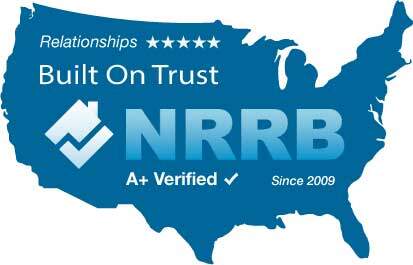National Real Estate Review Board







Negotiating Your Home Sale
Ensuring A Successful Negotiation
A good Real Estate Agent will negotiate professionally and effectively on your behalf. In the end, your pricing strategy, your promotion, your staging and agent choice all funnels into one moment. The negotiation.
You have a buyer that wants your house. You want to sell the house. You both want the best deal available. A skilled negotiator will find that win-win ground where everyone involved get’s most of what they want and are happy to close the deal. A lesser negotiator will leave money on the table or worse fail to find that common ground between buyer and seller.
The negotiation itself is a dance, an orchestrated exploration of both the buyer’s and the seller’s unique positions. You both have the same goal – completing the sale of the house. The challenge is finding a mutually acceptable compromise that gives you both as much of what you want as possible. Often the concern is money but remember, people’s positions are rarely as fundamentally opposed as they may initially appear. The other person may have very different goals from the ones you expect!
In an ideal situation, you will find that the other person wants what you are prepared to trade, and that you are prepared to give what the other person wants. If this is not the case and one person must give way, then it is fair for this person to try to negotiate some form of compensation for doing so – the scale of this compensation will often depend on the many of the factors we discussed above. Ultimately, both sides should feel comfortable with the final solution if the agreement is to be considered win-win.
A thorough understanding of your goals, needs and wants will help your negotiation move forward effectively. Consider the same for the other person. Think through the following points before you start negotiating:
- Goals: what do you want? What do you think the other person wants?
- Trades: What do you and the other person have that you can trade? It does not have to only be about the money. What do you each have that the other may want? What are you each comfortable giving away? Including the furniture for a full asking price may be a win-win. Reducing the price to avoid any additional improvements may meet the buyer’s money limitations while ending the any additional seller expense to fix a roof saving you time and money. The possibilities are endless.
- Alternatives: what options do you have? Is it critical that you reach an agreement with the other person? Are there other alternatives available? Are these good or bad? Does failure to reach an agreement limit your future opportunities? How about the other person? What options and alternatives might they have available?
- The consequences: action or inaction, deal or no deal the world moves on and there are consequences relating to this negotiation. What are the ramifications to you when complete this negotiation? What are the consequences for the other person?
- Power: who has what power in the relationship? Who controls what resources? Who stands to lose the most if agreement isn’t reached? What power does the other person have to deliver what you hope for?
- Possible solutions: based on all of the considerations, what possible compromises might there be? What are you willing to do to sweeten the deal. What do you think the other person can do to improve their offer?
Who Should Negotiate
For a negotiation to be ‘win-win’, both parties should feel positive about the negotiation once it’s over. “Yay, we won” should be the feeling in both camps. Utilizing your Real Estate Agents negotiating skills and experience can help ensure that result. Too often homeowners attach personal feelings to their house, feelings not reciprocated by buyers. For example, you may love the bright pink walls in your daughter’s room. To you, they represent the memory of creating a special space for your daughter. You may have even painted them together.
In your view, that pink room is an important value addition to the home. The buyer, with no children, likely sees those same pink walls simply as an expense, a change they will have to make in the days to come. At some point in the negotiation, those walls are going to be brought up. Being told your cherished memory is viewed as blight, a negative, is never easy to hear. The resulting feelings can quickly overpower a negotiation and redirect a straightforward deal into a series of unnecessary side discussions.
Stay on the sidelines. Let your real estate agent buffer you from the discussion. You can focus on trade-offs you are willing to offer or accept, rather than the emotionally charged items that relate to those trades. Your agent will negotiate professionally and effectively on your behalf. Your agent will consult with you along the way. And as always, you, not your Agent, will have final say in your negotiation.





